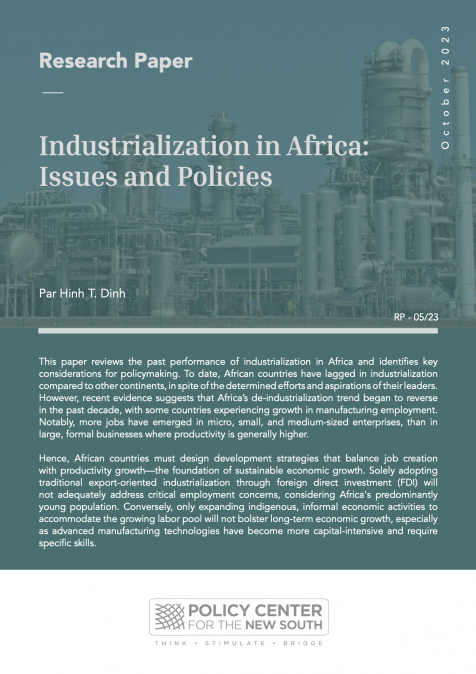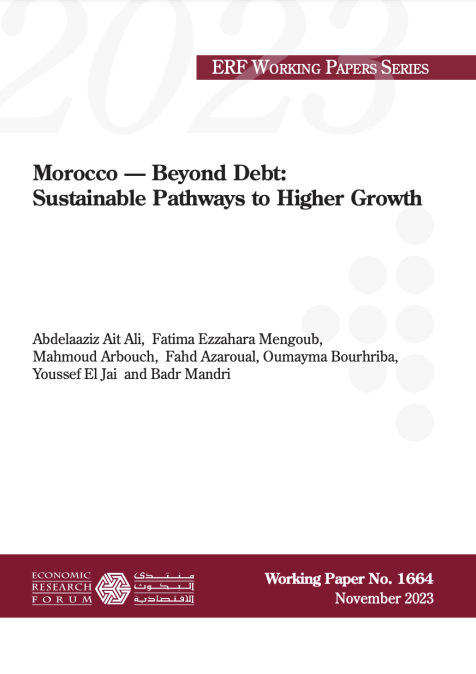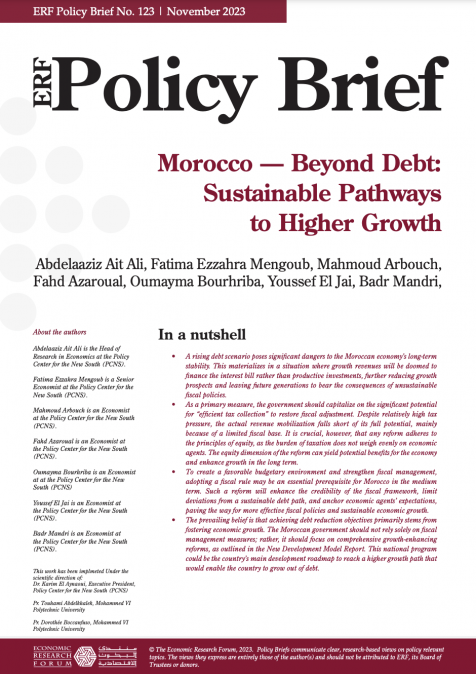Publications /
Research Paper
This paper reviews the past performance of industrialization in Africa and identifies key considerations for policymaking. To date, African countries have lagged in industrialization compared to other continents, in spite of the determined efforts and aspirations of their leaders. However, recent evidence suggests that Africa’s de-industrialization trend began to reverse in the past decade, with some countries experiencing growth in manufacturing employment. Notably, more jobs have emerged in micro, small, and medium-sized enterprises, than in large, formal businesses where productivity is generally higher.
Hence, African countries must design development strategies that balance job creation with productivity growth—the foundation of sustainable economic growth. Solely adopting traditional export-oriented industrialization through foreign direct investment (FDI) will not adequately address critical employment concerns, considering Africa's predominantly young population. Conversely, only expanding indigenous, informal economic activities to accommodate the growing labor pool will not bolster long-term economic growth, especially as advanced manufacturing technologies have become more capital-intensive and require specific skills.








